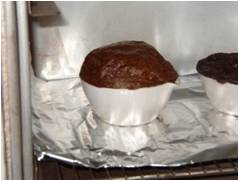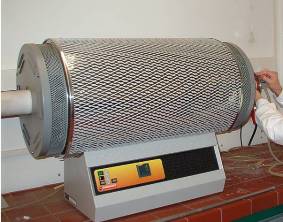
For the synthesis of many materials with metastable character, the preparation of very reactive precursors has demonstrated to be essential. These precursors are obtained through wet-chemistry processes, giving rise to a high degree of homogeneity and a small particle size.
We follow a well known process involving the formation of organic resins from citric acid, in solutions that contain the nitrates, carbonates or oxides (when they are soluble) of the concerned metals. After eliminating the organic matter by soft heating, the samples undergo the corresponding thermal treatment (oxidizing or reducing atmosphere), always at moderate temperatures.

For instance, the preparation of cathode materials for SOFC is carried out by this citrate procedure, simply followed by a thermal treatment in air at the adequate temperature to stabilize the wanted phase. The preparation of anode materials requires, by contrast, the treatment of the previously “oxidized” sample into a “reduced” material, which must be stable in the reducing conditions of the fuel (H2 or CH4).
